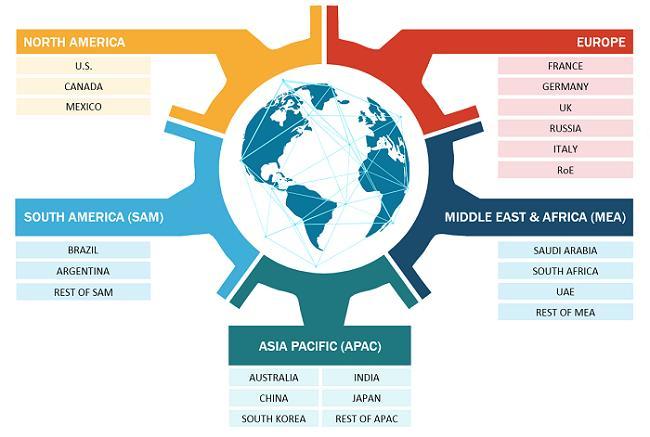DME Billing Illinois: Simplifying Durable Medical Equipment Claims

Durable Medical Equipment (DME) plays a vital role in patient care, providing individuals with essential medical tools that improve their quality of life. From wheelchairs to oxygen equipment, DME ensures that patients receive the support they need. However, the process of billing for these devices can be complex and time-consuming. In Illinois, healthcare providers rely on DME billing services to streamline insurance claims, reduce errors, and ensure timely reimbursements.
What is DME Billing?
DME billing refers to the administrative process of submitting and managing claims for durable medical equipment provided to patients. These claims are sent to insurance companies or Medicare/Medicaid, seeking reimbursement for the equipment supplied. Proper billing ensures that healthcare providers are compensated accurately and patients experience minimal hassle.
The DME billing process is more than just sending invoices. It involves coding, verifying insurance coverage, documenting medical necessity, and handling claim denials. Given the detailed regulations and frequent policy updates, many providers in Illinois prefer outsourcing DME billing to specialized services.
Importance of Accurate DME Billing in Illinois
Accurate DME billing in Illinois is crucial for several reasons:
-
Compliance with Regulations: Illinois follows federal and state guidelines for DME reimbursement. Accurate billing ensures compliance with CMS (Centers for Medicare & Medicaid Services) and other regulatory bodies.
-
Avoiding Claim Denials: Improper documentation or coding can result in claim denials, delaying payments. Accurate billing minimizes errors and accelerates reimbursements.
-
Improved Cash Flow: Timely submission of correct claims ensures steady revenue for healthcare providers, reducing financial stress.
-
Enhanced Patient Experience: When billing is handled efficiently, patients experience less paperwork and confusion regarding insurance coverage.
Common Challenges in DME Billing
Despite its importance, DME billing comes with challenges that providers must navigate:
1. Complex Insurance Requirements
Different insurance providers have varying documentation standards. For example, Medicare in Illinois requires detailed proof of medical necessity, specific coding, and adherence to benefit policies. Navigating these rules can be overwhelming without specialized knowledge.
2. Frequent Changes in Codes and Regulations
DME billing involves using specific HCPCS (Healthcare Common Procedure Coding System) codes. Illinois providers must stay updated with annual updates and changes in Medicare and Medicaid policies to avoid denials.
3. Claim Denials and Rejections
Claim denials are common due to missing documentation, incorrect codes, or eligibility issues. Resolving denied claims takes time and can negatively impact revenue.
4. Administrative Burden
Billing for DME requires detailed paperwork, verification of insurance coverage, and follow-ups on pending claims. Many healthcare providers struggle to balance administrative tasks with patient care.
Key Components of DME Billing
Effective DME billing services in Illinois focus on several key components to streamline the process:
1. Patient Eligibility Verification
Before providing DME, verifying a patient’s insurance coverage is essential. This step ensures that the equipment is covered, reducing the risk of denied claims.
2. Accurate Coding
Using the correct HCPCS codes and modifiers is critical for successful reimbursement. Codes must reflect the type of equipment, the quantity, and the medical necessity.
3. Documentation and Compliance
Proper documentation includes physician orders, prescription details, and medical necessity forms. This documentation supports the claim and ensures compliance with CMS guidelines.
4. Claim Submission and Follow-Up
Once claims are submitted electronically or manually, follow-up is necessary to address any issues, process denials, and confirm payments. Efficient follow-up improves cash flow and reduces delays.
5. Reporting and Analytics
DME billing services often provide detailed reporting on claim status, reimbursement trends, and denial rates. Analytics help providers identify inefficiencies and improve the billing process.
Benefits of Outsourcing DME Billing in Illinois
Outsourcing DME billing offers significant advantages for providers:
-
Reduced Administrative Burden: Staff can focus on patient care while billing experts handle claims.
-
Increased Accuracy: Specialized billing teams stay updated with codes and regulations, reducing errors.
-
Faster Reimbursements: Efficient claim submission and follow-up accelerate payments.
-
Cost-Effective: Outsourcing reduces the need for in-house billing staff and training expenses.
-
Expert Denial Management: Professional billing services have systems to handle and appeal denials efficiently.
DME Billing Process: Step by Step
Here’s an overview of how DME billing typically works in Illinois:
Step 1: Patient Registration
The process begins with collecting patient information, insurance details, and medical history. Accurate registration ensures correct claim submission.
Step 2: Verification of Coverage
Insurance verification confirms that the patient’s policy covers the prescribed DME. Any coverage limitations or requirements are noted.
Step 3: Coding and Documentation
Billing staff assign the appropriate HCPCS codes and gather supporting documents such as physician prescriptions and medical necessity forms.
Step 4: Claim Submission
Claims are submitted to the insurance provider electronically or via paper forms. Submission accuracy is critical for timely reimbursement.
Step 5: Payment Posting
Once the claim is processed, payments are recorded. Any partial payments or denials are analyzed for resolution.
Step 6: Denial Management
If claims are denied, the billing team reviews the reasons, corrects errors, and resubmits the claims. Continuous monitoring reduces future denials.
Tips for Efficient DME Billing in Illinois
Providers looking to enhance DME billing efficiency can follow these tips:
-
Stay Updated with Regulations: Regularly review CMS updates and Illinois Medicaid policies.
-
Invest in Billing Software: Electronic billing systems streamline claim submission and reduce errors.
-
Train Staff: Ensure your team understands coding, documentation, and insurance requirements.
-
Monitor Denial Trends: Identify recurring issues and implement corrective measures.
-
Collaborate with Billing Experts: Partnering with a professional DME billing service improves accuracy and revenue.
Conclusion
DME billing in Illinois is a complex but essential component of healthcare operations. Accurate and efficient billing ensures compliance, timely reimbursement, and a better patient experience. Whether handled in-house or outsourced to specialized billing services, attention to detail, proper documentation, and staying updated with regulations are key to success. By streamlining DME billing processes, Illinois healthcare providers can focus on what truly matters: providing quality care to their patients while ensuring their practice remains financially healthy.







